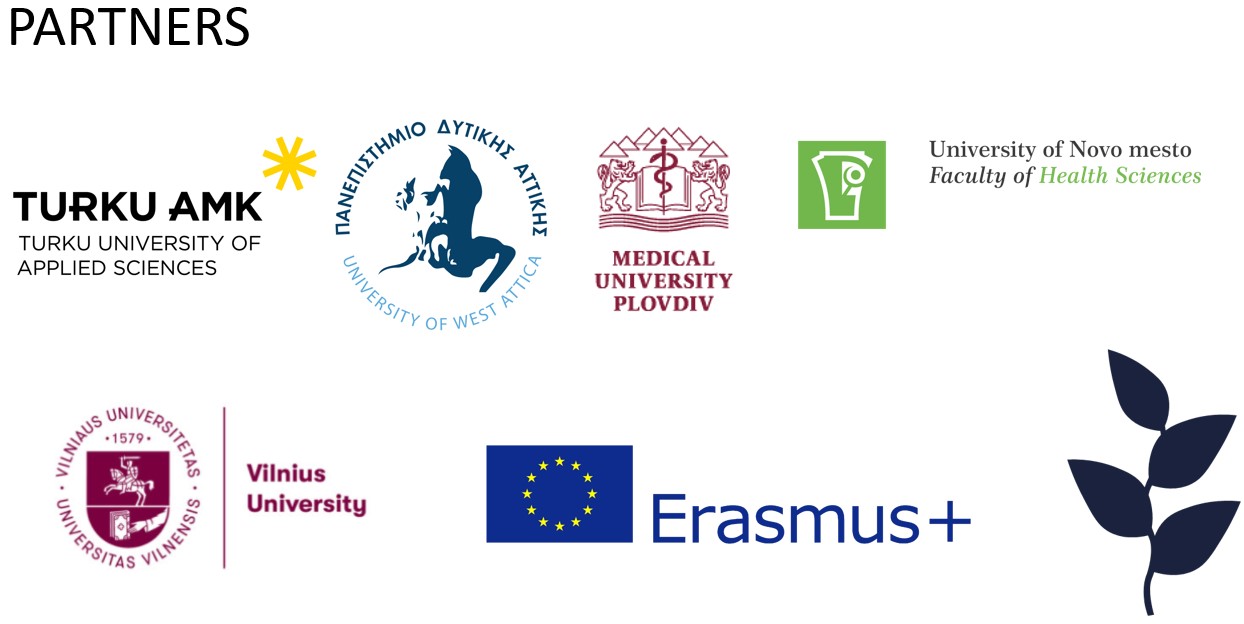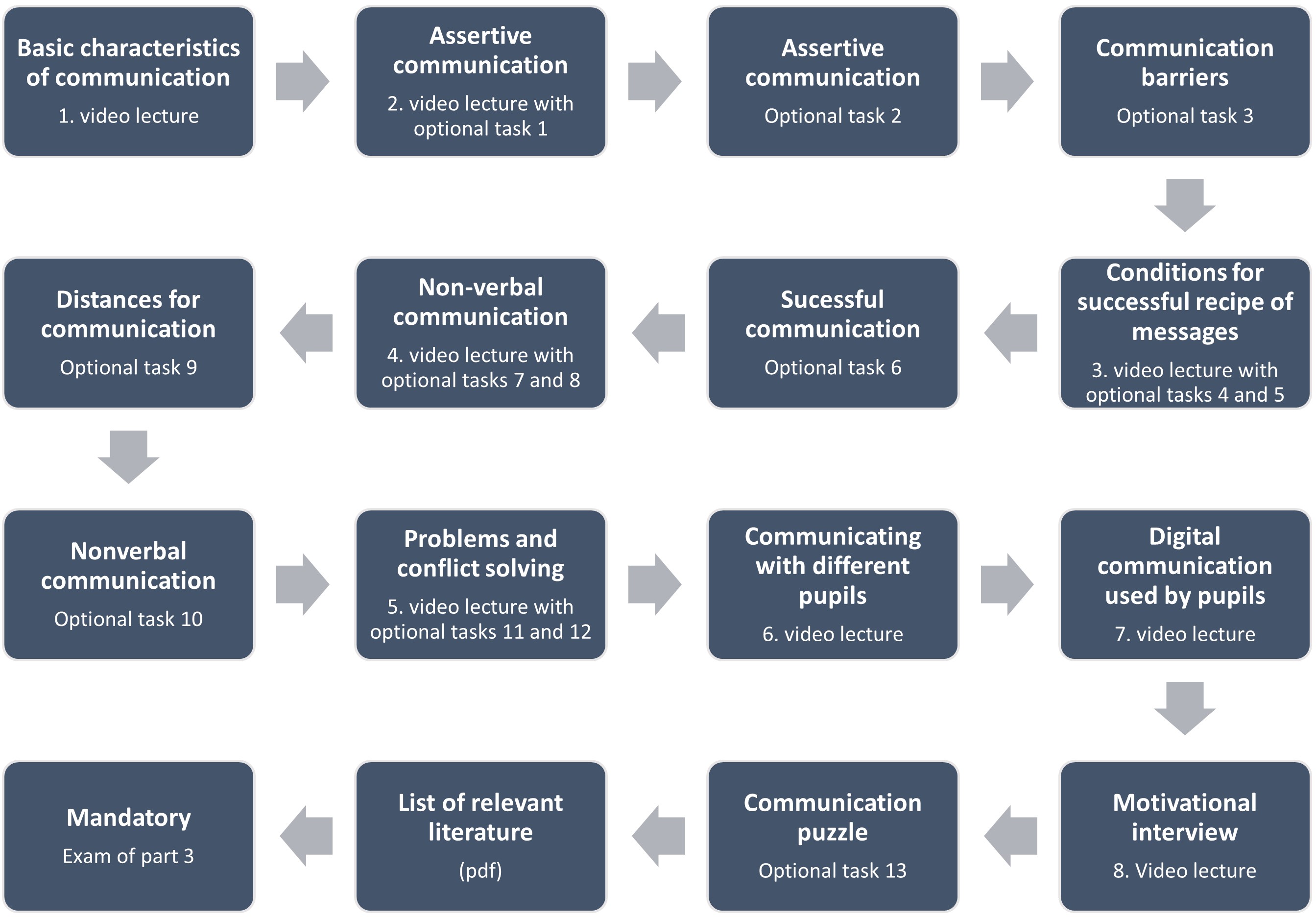Well@School
Well@School


Course guidelines
The Well@School is an open access online course promoting competences related to mental health promotion at primary schools. The learning platform has been developed for professionals working at schools as teachers, school health professionals, social workers, psychologists, and other professionals. The platform can also be used by other actors working with adolescents between ages 12 and 15.
The Well@School course is 5 ECTS, EQ level 6. The course consists of five (5) parts. The course enables independent learning without specific time nor place restrictions. All five parts of the course, slightly differ not only by topic, but also in external appearance and pedagogical approach. The differences are intentional, as each approach is tailored to present different course content, while partners across Europe have been able to show their own unique contribution to the unit.
It is recommended that You first read the Course Guidelines and Background. Then go to part 1, read the learning material and complete the tasks. You can choose to work only on the mandatory tasks or additionally on the optional tasks, depending on your interest.
After you have successfully completed the compulsory tests of part 1, you can move on to part 2. Continue as recommended until you have completed part 5 and successfully completed all mandatory tasks. If you want to easily follow the progression of your learning tasks, you can use the Learning Task Completion table below.|
Part |
Content |
Completed |
|
Part 1. |
Mental health and its determinants |
|
|
Mandatory task |
Quiz |
|
|
Optional task |
Task |
|
|
Part 2. |
Mental health challenges |
|
|
Mandatory task |
Self-reflection task 1. |
|
|
Mandatory task |
Self-reflection task 2. |
|
|
Part 3. |
Interpersonal skills in supporting mental health of children |
|
|
Mandatory task |
Exam |
|
|
Optional task |
Tasks 1-13 |
|
|
Part 4. |
The mental health promotive school community |
|
|
Mandatory task |
Exam |
|
|
Optional task |
Tasks 1-5 |
|
|
Part 5. |
Digital methods to promote mental health |
|
|
Mandatory task |
Quiz |
|
|
Mandatory task |
Reflective essay |
|
After successfully completing all Mandatory tasks, you will be able to print out your “Certificate” of completing the Well@School course (5 ECTS).
You will also be able to use the material for further noncommercial purposes, such as teaching material. The Well@School course materials are licensed under a Creative Commons Attribution-NonCommercial-ShareAlike 4.0 International License.
Now you are ready to start the learning journey of the Well@School course. We wish you a pleasant, versatile, and useful learning experience.
The Well@School project (2020-2023) builds new knowledge and practices for higher education. The aim of the project is to ensure that primary school teachers, health professionals and curators have the competences required for promoting mental health in school communities, using digital methods. The Well@School project promotes the key competences related to mental health promotion. It also builds up digital competences in communication, co-creation, teaching and learning of professionals working in schools.
In the Well@School project, a new higher education open access platform has been developed. It includes a framework, online course and a handbook for promoting mental health in primary schools, using digital methods.
Hereinafter Mental Health = MH
Part 1. Mental Health and its determinants (1 ECTS)
CONTENT: Determinants of MH (Mental Health) and well-being on child and adolescent
Mental health literacy (MHL)
Stigma
Protective and risk factors of MH
Physical, psychological and social development
|
OBJECTIVES AND COMPETENCES: The main objective is to develop general understanding of the concept MH and its determinants. The learning unit mainly contributes to the development of the following general and specific competences
|
INTENDED LEARNING OUTCOMES: Students:
|
Recomended learning process for Part 1:

Part 2. Mental health challenges (1 ECTS)
CONTENT: How to differentiate severe MH (Mental Health) disorders from other MH challenges? Most common severe MH disorders in school-aged children
Other vulnerable groups:
Early detection of high-risk groups at schools
|
OBJECTIVES AND COMPETENCES: The main objective is to differentiate severe MH disorders from other MH challenges The learning unit mainly contributes to the development of the following general and specific competences:
|
INTENDED LEARNING OUTCOMES: Students:
|
Recomended learning process for Part 2:

- Information on mental health problems (presentation with voice) (File)
- Other challenges in school mental health (File)
- Screening tools for mental health problems (File)
- Levels of prevention and supportive mental health interventions (File)
- Optional task on the concept of health promotion (Interactive Content)
- Mandatory self-reflection task 1 of part 2. mental health disorders (Interactive Content)
- Mandatory self-reflection task 2 of part 2. high risk groups (Interactive Content)
Part 3. Interpersonal skills in supporting mental health of children (1 ECTS)
CONTENT: Key elements of quality interpersonal and encountering skills in promotion of MH (Mental Health):
Communication with children:
Motivational interview
Digital communication: specifics of digital communication used by children. |
OBJECTIVES AND COMPETENCES
|
INTENDED LEARNING OUTCOMES: Students:
|
Recomended learning process for Part 3:

- 1. Video lecture: Basic characteristics of communication (Page)
- 2. Video lecture: Assertive communication (with optional task 1) (Interactive Content)
- Optional task 2: Assertive communication (Interactive Content)
- Optional task 3: Communication barriers (Interactive Content)
- 3. Video lecture: Conditions for successful recipe of messages (with optional tasks 4 and 5) (Interactive Content)
- Optional task 6: Sucessful communication (Interactive Content)
- 4. Video lecture: Non-verbal communication (with optional tasks 7 and 8) (Interactive Content)
- Optional task 9: Distances for communication (Interactive Content)
- Optional task 10: Nonverbal communication (Interactive Content)
- 5. Video lecture: Problems and conflict solving (with optional tasks 11 and 12) (Interactive Content)
- 6. Video lecture: Communicating with different pupils (Page)
- 7. Video lecture: Digital communication used by pupils (Page)
- 8. Video lecture: Motivational interview (Page)
- Optional task 13: Communication puzzle (Interactive Content)
- List of relevant literature for further reading (optional) (File)
- Mandatory exam of part 3 (Interactive Content)
Part 4. The mental health promotive school community (1 ECTS)
CONTENT: The role and importance of multiprofessional skills to promote MH (Mental Health).
Importance of multiprofessional collaboration
Tools and methods for MH promotion in school community MH promotive school environment Strategies to tackle stigma Family involvement in service network for mental promotion Inclusion in schools Targeted global (EU) prevention programs
|
OBJECTIVES AND COMPETENCES:
|
INTENDED LEARNING OUTCOMES: Students:
|
Recomended learning process for Part 4:

- Optional task 1. Who are the members of the school community? (Interactive Content)
- Meaning of school community, school community target groups analysis (optional task 2.)). (Interactive Content)
- A multidimensional approach to the inclusive school community (optional task 3)) (Interactive Content)
- School-wide approaches to intervention for mental health problems (optional task 4.) (Interactive Content)
- Multi-professional collaboration and policy of mental health services (optional task 5) (Interactive Content)
- Mandatory exam of part 4 (Interactive Content)
Part 5. Digital methods to promote mental health (1 ECTS)
CONTENT: Essential digital methods in MH (Mental Health) promotion
Other digital applications
|
OBJECTIVES AND COMPETENCES The main objective is to gain understanding on Essential digital methods of MH promotion in school environment The learning unit mainly contributes to the development of the following general and specific competences:
|
INTENDED LEARNING OUTCOMES Students:
|
Recomended learning process for Part 5:

Please, start by reading the Information to part 5. PP-presentation.
Then, continue to the main reading material:
Gigantesco, A., Palumbo, G., Zadworna-Cies´lak, M., Cascavilla, I., Del Re, D., Kossakowska, K. and WST European Group* 2019. An international study of middle school students’ preferences about digital interactive education activities for promoting psychological well-being and mental health. Ann Ist Super Sanità 2019 | Vol. 55, No. 2: 108-117 DOI: 10.4415/ANN_19_02_02 An international study of middle school_ANN_19_02_02.pdf
Markkanen P. 2021. Supporting pupils’ mental health in schools. Teaching staff’s and school nurses’ perceptions and the suitability of a webbased support system for pupils. Turun yliopiston julkaisua - Annales Universitatis Turkuensis, Ser. Medica-Odongologica. Available from: https://urn.fi/URN:ISBN:978-951-29-8695-8
Sakellari, E., Notara, V., Lagiou, A., Fatkulina, N., Ivanova, S., Korhonen, J., Kregar Velikonja, N., Lalova, V., Laaksonen, C., Petrova, G., & Lahti, M. (2021). Mental Health and Wellbeing at Schools: Health Promotion in Primary Schools with the Use of Digital Methods. Children (Basel, Switzerland), 8(5), 345. https://doi.org/10.3390/children8050345
WH0. 2021. World health organization. Global strategy on digital health 2020-2025. Geneva: World Health Organization; 2021. Licence: CC BY-NC-SA 3.0 IGO. https://apps.who.int/iris/bitstream/handle/10665/344249/9789240020924-eng.pdf
After this, continue to the Quiz and finalize part 5. by writing a reflective essay.We wish you a very good learning experience!
- Introduction (File)
- Overview paper (File)
- Mandatory quiz of part 5: Digital methods for mental health promotion at schools (Interactive Content)
- Mandatory reflective essay of Part 5 (Interactive Content)